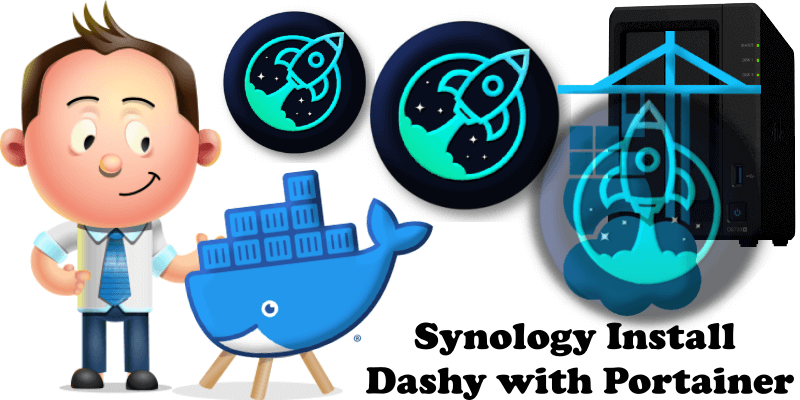
My previous guide for Dashy involved the use of Task Scheduler. Today I’m offering a recommended and excellent alternative for installing the latest Dashy version via Portainer. Dashy helps you organize your self-hosted services by making them accessible from a single dashboard. Dashy is an open source, highly customizable, easy to use, privacy-respecting dashboard app like Homarr, Flame, Homepage and Heimdall. In this step by step guide I will show you hot to install Dashy on your Synology NAS using Docker & Portainer.
This guide works perfectly with the latest Dashy 3.1.1 release.
STEP 1
Please Support My work by Making a Donation.
STEP 2
Install Portainer using my step by step guide. If you already have Portainer installed on your Synology NAS, skip this STEP. Attention: Make sure you have installed the latest Portainer version.
STEP 3
Install Text Editor via Synology “Package Center”. If you already have Text Editor installed on your Synology NAS, skip this STEP.
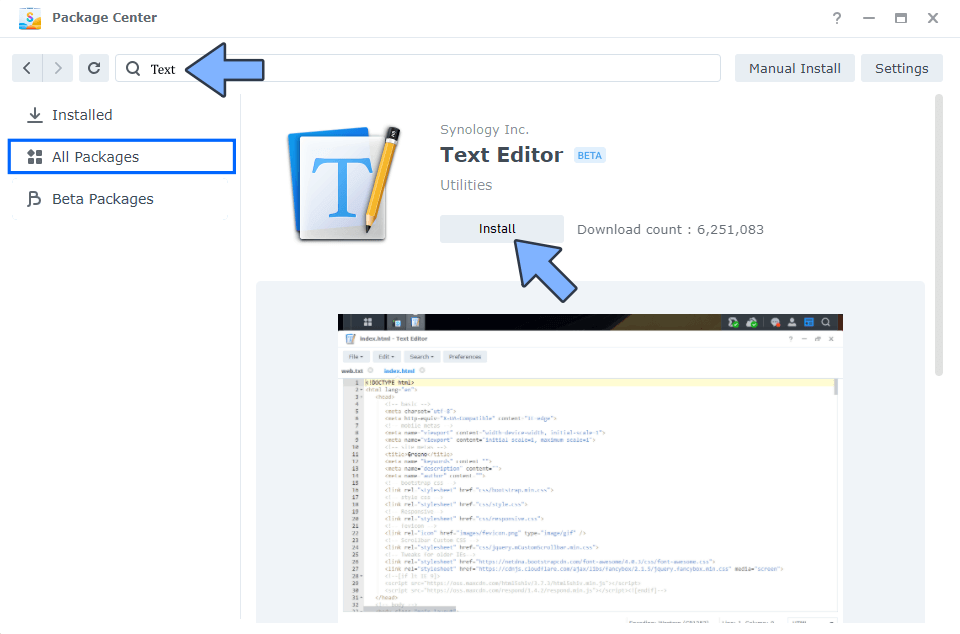
STEP 4
Go to File Station and open the docker folder. Inside the docker folder, create one new folder and name it dashy. Follow the instructions in the image below.
Note: Be careful to enter only lowercase, not uppercase letters.
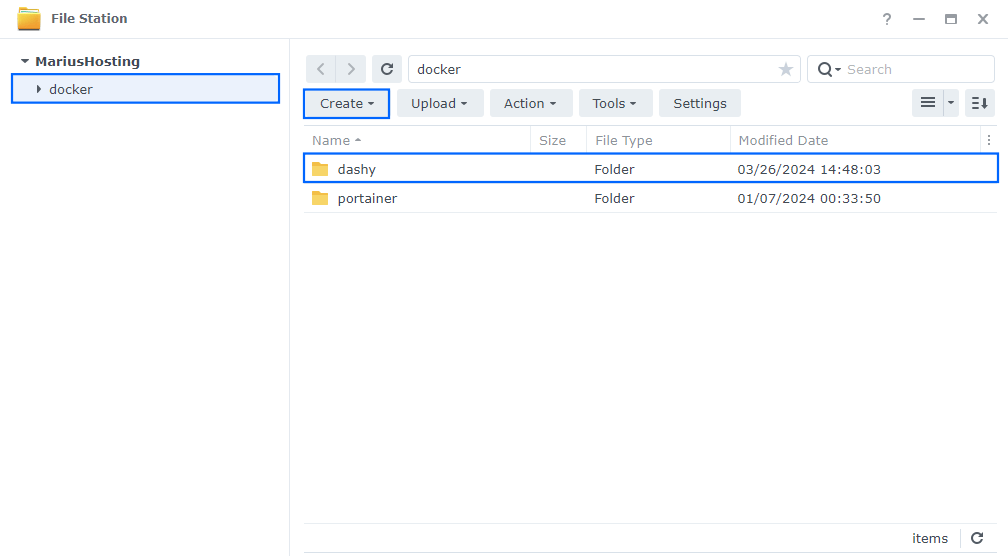
STEP 5
Now create one new folder inside the dashy folder that you have previously created at STEP 4 and name it icons. Follow the instructions in the image below.
Note: Be careful to enter only lowercase, not uppercase letters.
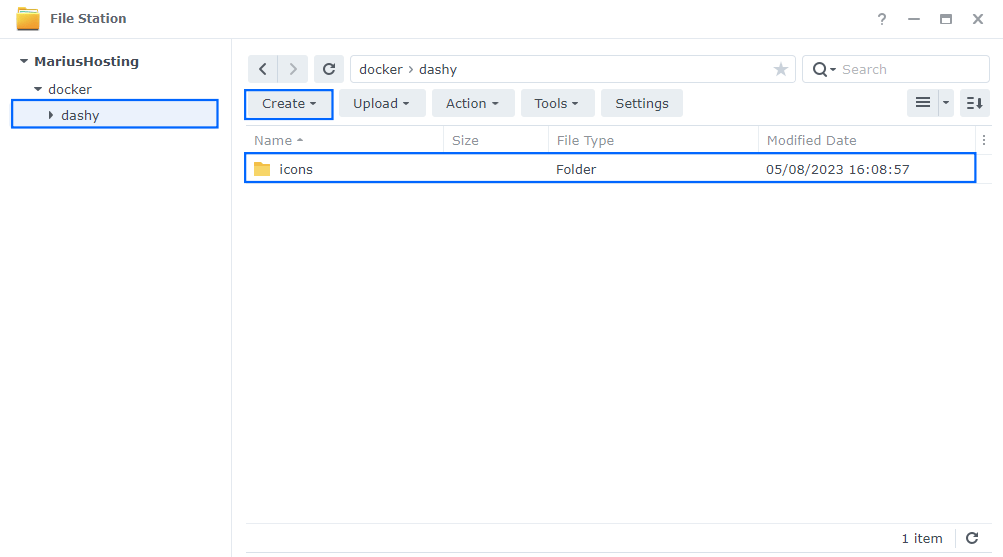
STEP 6
Download (click on the blue link below) then upload the dashyconf.yml file below in the dashy folder that you have previously created at STEP 4. Follow the instructions in the image below. 🔒Note: Support my work to unlock the password. You can use this password to download any file on mariushosting Forever!
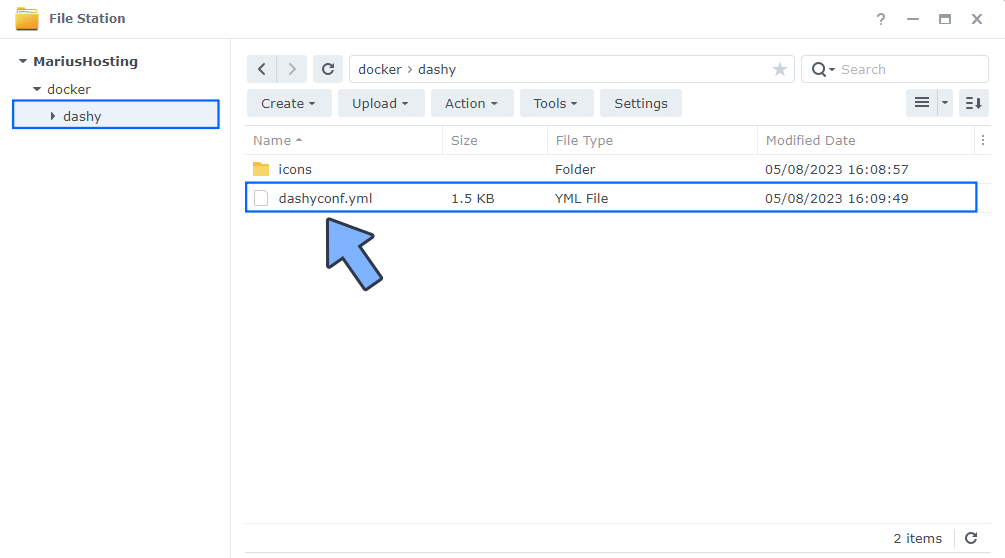
STEP 7
Download (click on the blue link below) then upload the icons.zip file below in the icons folder that you have previously created at STEP 5. Follow the instructions in the image below. 🔒Note: Support my work to unlock the password.
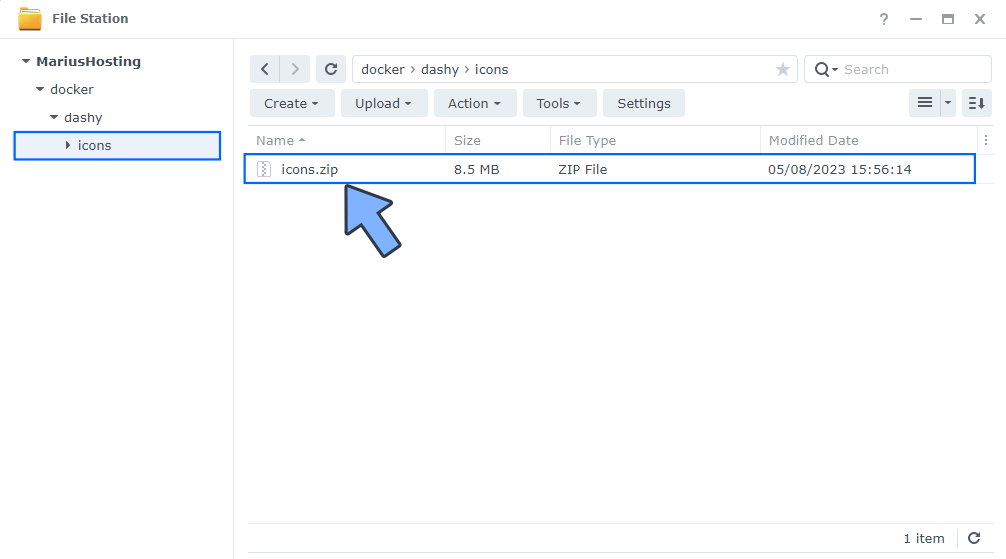
STEP 8
Right click on the icons.zip file. Click Extract then Extract Here. Follow the instructions in the image below.
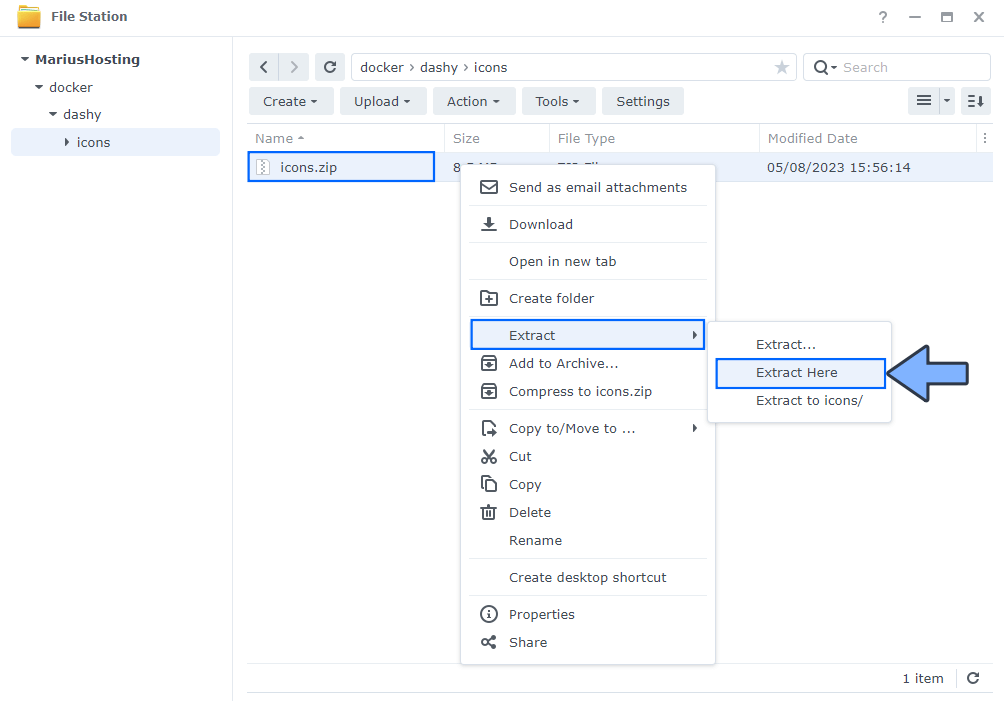
STEP 9
Log into Portainer using your username and password. On the left sidebar in Portainer, click on Home then Live connect. Follow the instructions in the image below.

On the left sidebar in Portainer, click on Stacks then + Add stack. Follow the instructions in the image below.

STEP 10
In the Name field type in dashy. Follow the instructions in the image below.
services:
dashy:
image: lissy93/dashy:latest
container_name: Dashy
restart: on-failure:5
healthcheck:
test: ['CMD', 'node', '/app/services/healthcheck']
interval: 1m30s
timeout: 10s
retries: 3
start_period: 40s
environment:
UID: 1026
GID: 100
NODE_ENV: production
volumes:
- /volume1/docker/dashy/dashyconf.yml:/app/user-data/conf.yml
- /volume1/docker/dashy/icons:/app/user-data/item-icons:rw
ports:
- 7444:8080
restart: on-failure:5Note: Before you paste the code above in the Web editor area below, change the value numbers for UID and GID with your own values. (Follow my step by step guide on how to do this.)
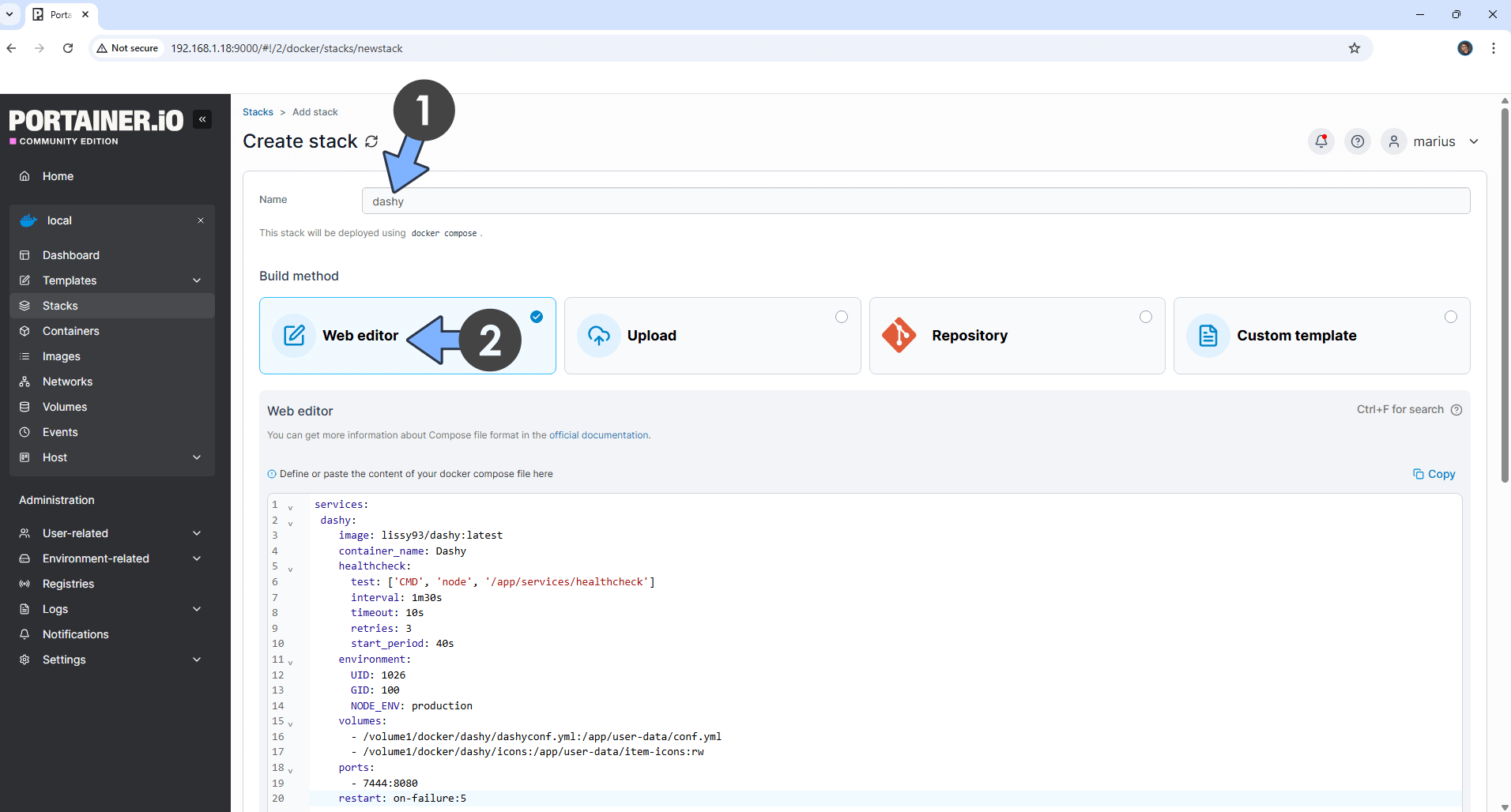
STEP 11
Scroll down on the page until you see a button called Deploy the stack. Click on it. Follow the instructions in the image below. The installation process can take up to a few minutes. It will depend on your Internet speed connection.
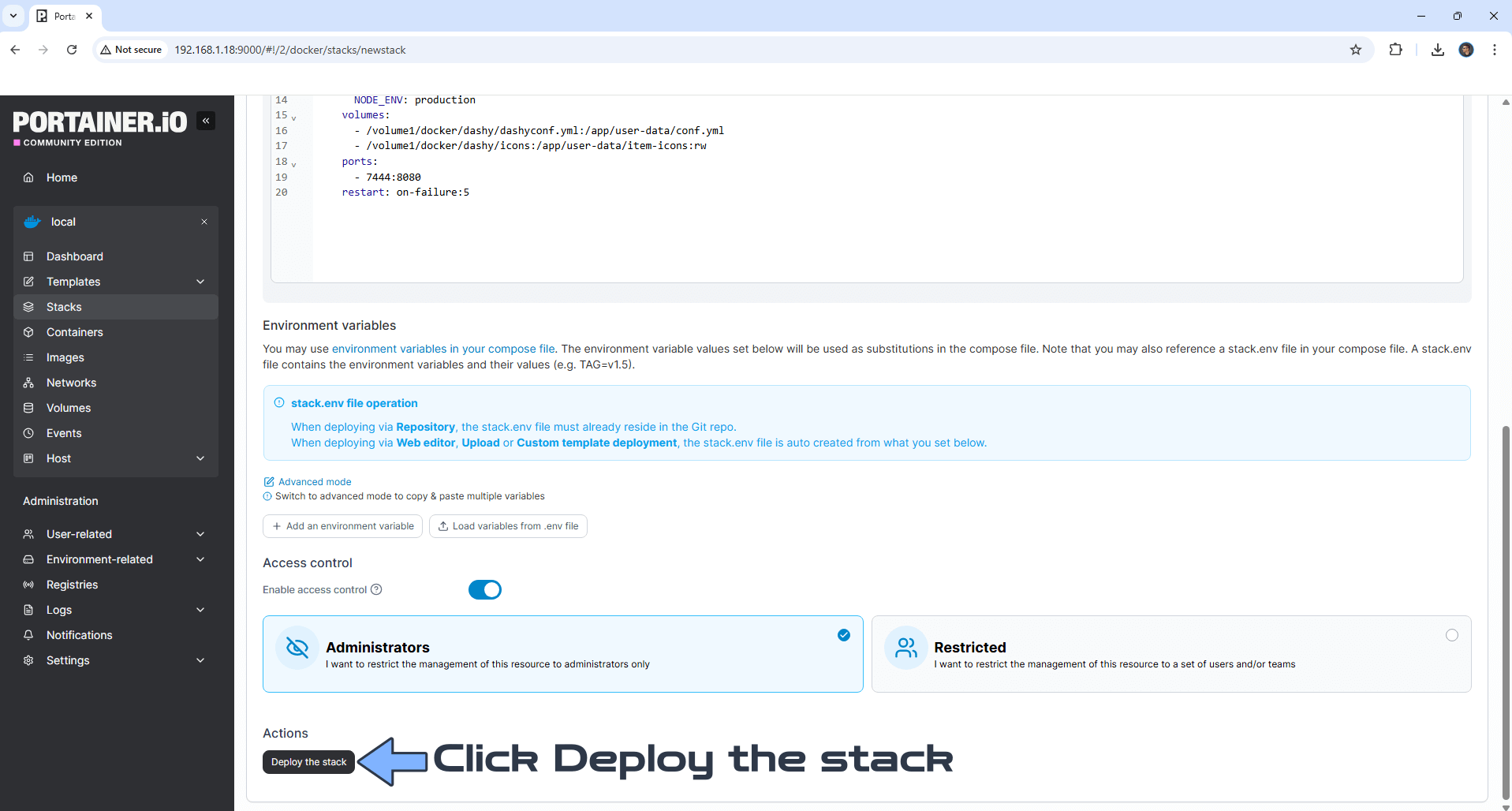
STEP 12
If everything goes right, you will see this message at the top right of your screen: “Success Stack successfully deployed“.

STEP 13
🟢Please Support My work by Making a Donation. Almost 99,9% of the people that install something using my guides forget to support my work, or just ignore STEP 1. I’ve been very honest about this aspect of my work since the beginning: I don’t run any ADS, I don’t require subscriptions, paid or otherwise, I don’t collect IPs, emails, and I don’t have any referral links from Amazon or other merchants. I also don’t have any POP-UPs or COOKIES. I have repeatedly been told over the years how much I have contributed to the community. It’s something I love doing and have been honest about my passion since the beginning. But I also Need The Community to Support me Back to be able to continue doing this work.
STEP 14
The installation process can take up to a few seconds/minutes. It will depend on your Internet speed connection. Now open your browser and type in http://Synology-ip-address:7444 Wait for Dashy to load. Follow the instructions in the image below.
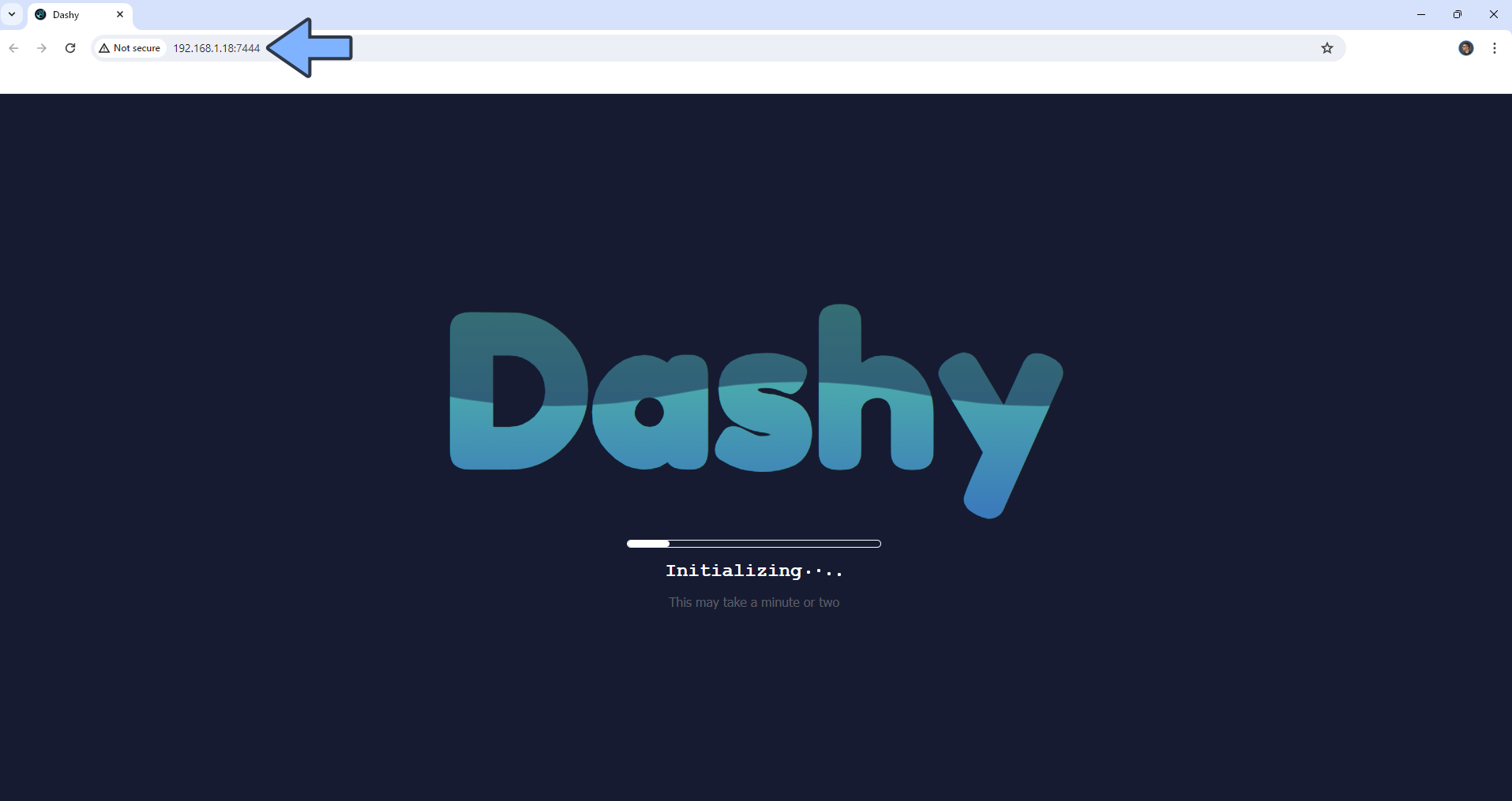
STEP 15
Your Dashy dashboard at a glance!
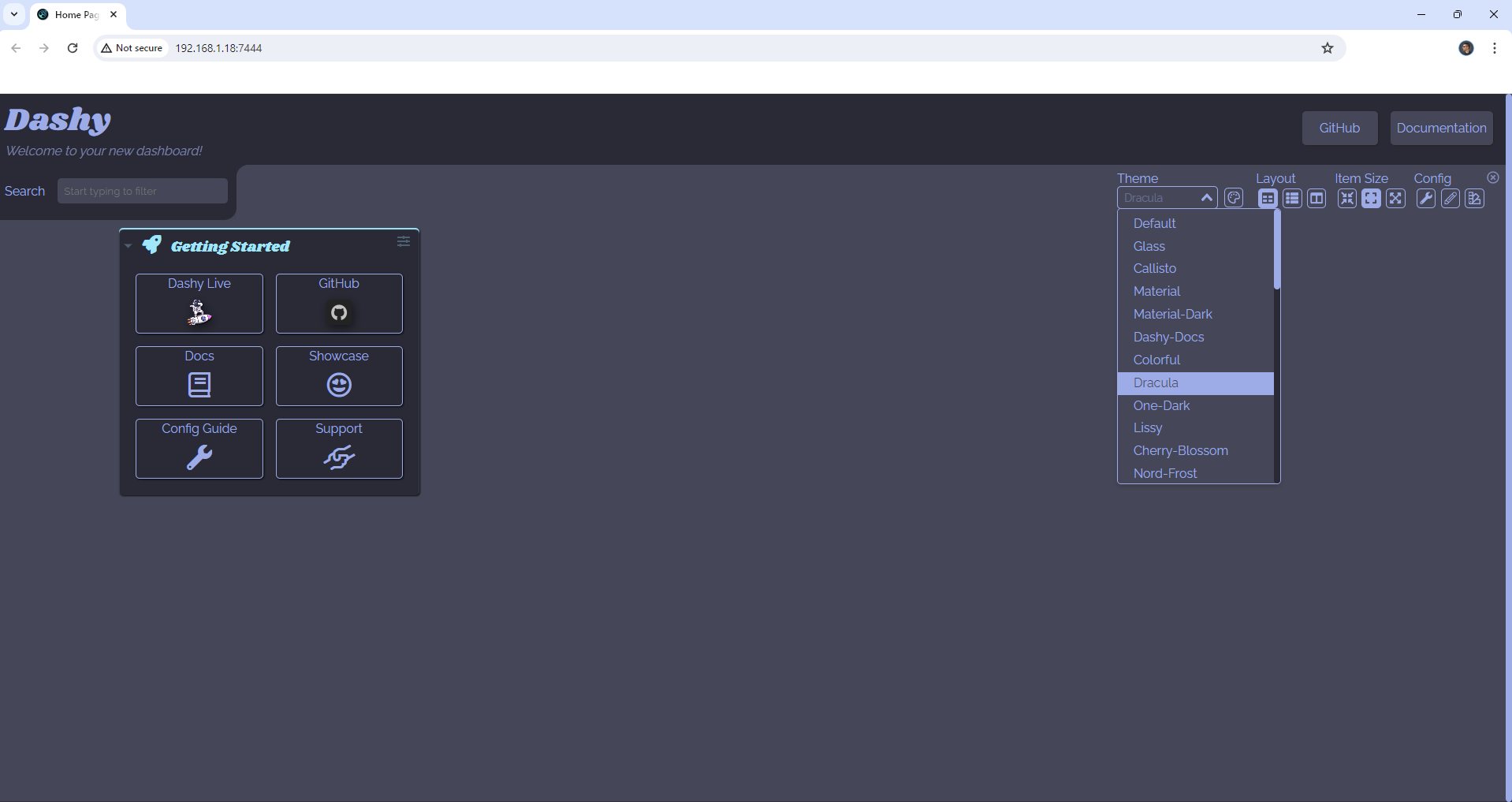
STEP 16
To add icons and apps, modify the dashyconf.yml file in File Station as per your needs/requirements.
Note: To be able to edit the dashyconf.yml file, you will need Text Editor installed on your Synology NAS as per the instructions at STEP 3.
Note: After you edit and save the dashyconf.yml file, it’s mandatory to restart the Dashy container in Portainer to apply the changes.
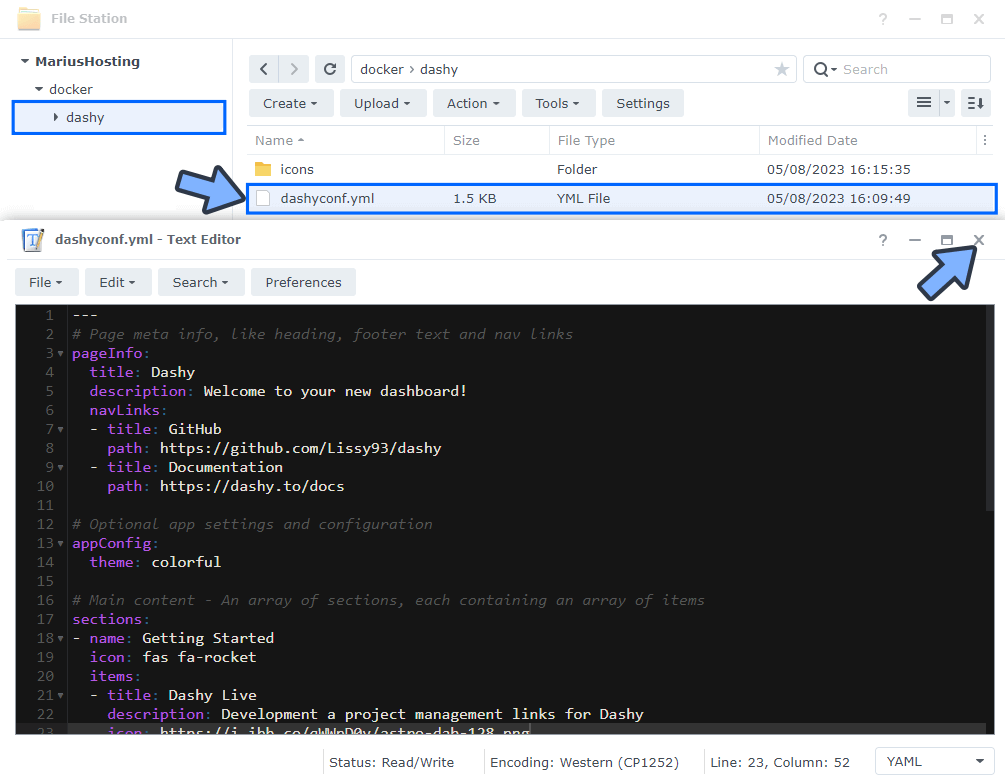
Enjoy Dashy!
If you encounter issues by using this container, make sure to check out the Common Docker issues article.
Note: If you want to run the Dashy container over HTTPS, check How to Run Docker Containers Over HTTPS. In order to make Dashy work via HTTPS, it’s mandatory to activate WebSocket.
Note: Can I run Docker on my Synology NAS? See the supported models.
Note: How to Back Up Docker Containers on your Synology NAS.
Note: Find out how to update the Dashy container with the latest image.
Note: How to Free Disk Space on Your NAS if You Run Docker.
Note: How to Schedule Start & Stop For Docker Containers.
Note: How to Activate Email Notifications.
Note: How to Add Access Control Profile on Your NAS.
Note: How to Change Docker Containers Restart Policy.
Note: How to Use Docker Containers With VPN.
Note: Convert Docker Run Into Docker Compose.
Note: How to Clean Docker.
Note: How to Clean Docker Automatically.
Note: Best Practices When Using Docker and DDNS.
Note: Some Docker Containers Need WebSocket.
Note: Find out the Best NAS Models For Docker.
Note: Activate Gmail SMTP For Docker Containers.
This post was updated on Sunday / December 28th, 2025 at 6:02 PM
